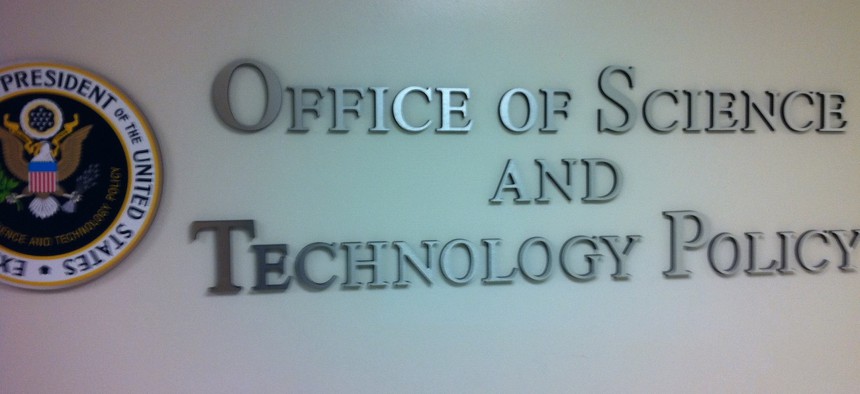
Guidance issued by the Office of Science and Technology Policy after the executive order was signed has rankled stakeholders. justgrimes/Flickr
Trump’s science order faces scrutiny from scientists and lawmakers
Critics are raising alarms over the Restoring Gold Standard Science executive order, saying the updated guidelines could weaken safeguards meant to keep politics out of federal research.
The Trump administration is facing backlash after it put forward new guidelines for the use of science at federal agencies, with scientists and Democratic lawmakers suggesting the policies would roll back efforts to protect federal workers from undue influence.
In May, President Trump signed the Restoring Gold Standard Science executive order, which reinstated and expanded some of the most controversial elements of this first administration's approach to science. Subsequent guidance from the Office of Science and Technology Policy has rankled stakeholders even as the administration maintains it is simply seeking to remove any bias from the federal scientific process.
Michael Kratsios, the White House’s OSTP director, called for science at federal agencies to be reproducible, transparent, communicative of uncertainty, collaborative, skeptical of its findings, subject to unbiased peer review, accepting of negative results and free of conflicts of interest. Agencies, by Aug. 22, must report on how they are incorporating those tenets into their culture, developing standardized metrics to assess their adherence to the new policy, training employees on the updated expectations and leveraging technology for implementation.
While much of the language was routine, some critics suggested Trump was returning to policies in his first term in which the Interior Department and Environmental Protection Agency prohibited employees from publishing science unless the full scope of its underlying data could also be made public. Critics of the plans suggested at the time that they improperly prevented employees from using legitimate scientific research, as data is often not public due to privacy concerns of individuals in testing and surveys.
President Biden quickly reversed the policy after taking office.
Trump’s executive order, however, will require agencies to make public “data, analyses, and conclusions” associated with any scientific or technological information they use or produce in making major decisions.
Gretchen Goldman, who worked in OSTP and the Transportation Department during the Biden administration and is now the president of the Union of Concerned Scientists, said the guidance contains some language regarding integrity and reproducibility familiar to federal scientists.
“But behind this facade is concerning language that sets the stage for the administration to undermine science-based policy—the same playbook followed by the first Trump administration,” Goldman said.
She in particular highlighted that Trump’s order to rescind every scientific integrity policy implemented under President Biden undermined the Trump administration’s efforts. Biden stood up a scientific integrity task force shortly after taking office, which subsequently put forward a model policy and called for all agencies to implement updates. Goldman noted the administration expanded comprehensive scientific integrity policies and officers to 30 agencies, though some observers found those policies did not go far enough.
“Science has been politicized by both major political parties; there is nothing inherently partisan about protecting the people and processes that ensure accurate information and scientific advice inform government decisions,” Goldman said.
Last week, nearly three-dozen Democratic lawmakers wrote to Trump asking him to repeal the order and called it “a hollow public relations stunt.” In addition to the mandatory publication of underlying scientific data agencies use in decision making, the House members flagged a requirement that political appointees oversee enforcement of the policy and “correct scientific information in response to violations” as alarming.
“The order invites ideological enforcement and suppresses dissent,” they said. “That is not scientific integrity—it is its undoing.”
They also blasted the administration for proposing significant funding cuts to scientific agencies and suggested the workforce reductions at them has created a chilling effect.
“You are cultivating an environment where researchers fear professional retaliation or public vilification for producing evidence that challenges political narratives,” the lawmakers said. “That is the very definition of politicizing science.”
Share your news tips with us:
Eric Katz: ekatz@govexec.com, Signal: erickatz.28
NEXT STORY: FBI to move headquarters into Reagan Building, seemingly resolving decades-long fight







